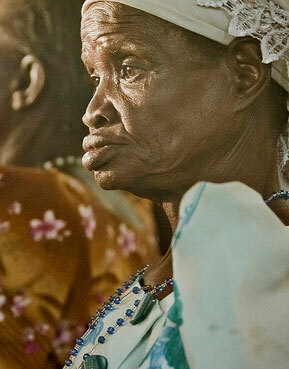Museveni to launch senior citizens scheme- Womens Day Supplement
Mar 08, 2012
President Yoweri Museveni will today launch the Ministry of Gender, Labour and Social Development’s Senior Citizens Grants (SCGs) for Nebbi District. These grants are being implemented under the Expanding Social Protection Programme.


By Elvis Basudde
President Yoweri Museveni will today launch the Ministry of Gender, Labour and Social Development’s Senior Citizens Grants (SCGs) for Nebbi District. These grants are being implemented under the Expanding Social Protection Programme.
Under the scheme, older persons of 65 years and above (60 in the case of Karamoja) will receive monthly Direct Income Support of 23,000. Nebbi is one of the five districts that are coming on board to receive the grants by April 2012. Others are Apac, Katakwi, Moroto and Nakapiripirit. Kaberamaido, Kiboga and Kyenjojo districts started delivering the grants in September 2011.
In total, the Senior Citizens Grants will be piloted in 14 districts of Apac, Kaberamaido, Katakwi, Kiboga, Nebbi, Kyenjojo, Moroto, Nakapiripirit, Amudat, Kyegegwa, Kyankwanzi, Zombo, Napak and Kole.
About the grants
Rukia Nakadama, Minister of State Women and Culture, says the Senior Citizens Grants complement Government’s efforts to empower women and address their unique vulnerability and needs. In particular, the grant supports older women to empower their granddaughters to access good quality health and education services.
On the choice of Women’s Day to launch the grants in Nebbi, Stephen Kasaija, Head of the Social Protection Secretariat, says the Ministry of Gender has chosen to launch the second phase roll out of the grants in Nebbi on International Women’s Day. This is because of strong benefits that the SCGs are expected to bring to Uganda’s women. The majority of the beneficiaries of the SCGs are older women.
“At national coverage, the grants would directly reach over 562,000 women, 59% of all beneficiaries. The majority of the women don’t have any other form of income security as women’s lower participation in the formal labour force means they are less likely to be in receipt of formal pensions or have any substantial savings to sustain them in old age,” Kasaija says.
He adds that the SCGs will directly benefit women; reducing their dependency on others, while empowering them to participate in social and community affairs and enabling them to age with dignity and security.
Target group
Beatrice Okillan, the Policy and Learning Manager, Expanding Social Protection Programme, says the Senior Citizens Grants will not only be beneficial to older women, but the whole family as well.
Uganda’s older women play a critical role in providing the basic requirements for their families, and money in the hands of Uganda’s elderly women is likely to be invested in the welfare of their children and grandchildren.
Evidence from other countries shows that all over the world, grandparents tend to invest their Senior Citizens Grants in their families and particularly their grandchildren. For example, in Namibia, 72% of the income from senior citizens grants is shared with others, with over half given to grandchildren.
In South Africa, those children in households with older people who are receiving senior citizens grants are between 3-5 centimetres taller than others, indicating significant nutritional benefits. In Lesotho, grandparents use their pension to buy uniforms, books and stationary and pay for school trips for their grandchildren.
Benefits
The Ministry of Gender, Labour and Social Development officials say that already, evidence emerging from the first three districts in Uganda to receive the grants is showing that grants given to older persons are going to pay for scholastic materials, medication and food for all the family, including grandchildren. The provision of Senior Citizens Grants will therefore not only directly empower Uganda’s older citizens. They will also enable poor and vulnerable women to provide better food and help improve access to education and health services for their families.
This will ensure investment in the girl child with long lasting impacts for Uganda’s social and economic transformation.
